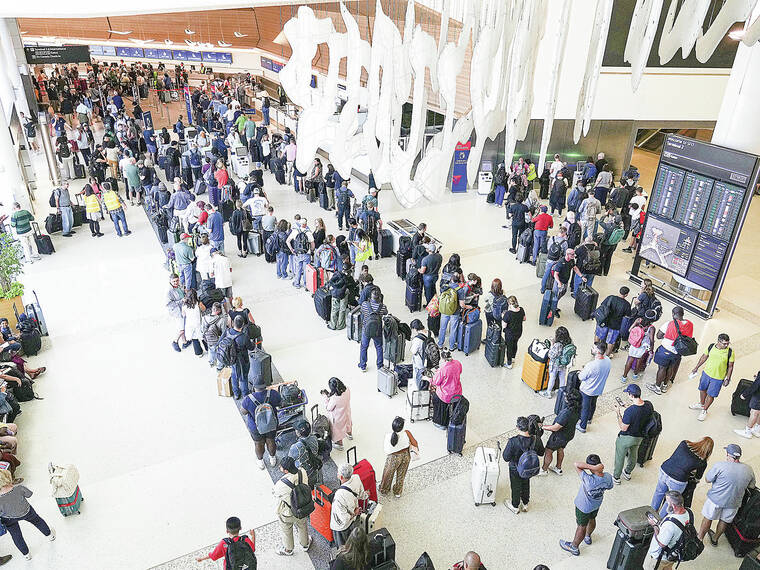Delta cancels more flights as it struggles to recover from tech outage
Three days after planes around the world were grounded by a technology outage, Delta Air Lines was struggling to get stranded passengers to their destinations on Monday and was the only carrier still canceling hundreds of flights as it raced to update its systems.
The company’s performance was much worse than other large U.S. air carriers like American Airlines and United Airlines, which were operating with few cancellations, and appeared to stem from decisions it made when its systems first went down, analysts said.
ADVERTISING
The secretary of transportation, Pete Buttigieg, singled out Delta on Sunday for its slow recovery and said that his office had received numerous complaints about Delta’s customer service. He warned that the carrier must provide its customers with adequate assistance and refunds. Delta canceled about 1,300 flights Sunday, roughly the same number as each of the previous two days, and delayed another 1,600, according to flight tracking website FlightAware. The cancellations represented about a third of the airline’s scheduled flights.
Delta’s cancellations Monday — 815 as of 3 p.m. ET — accounted for about 21% of its scheduled departures, according to FlightAware. Another 34% of its flights were delayed.
The tech outage Friday hit airlines especially hard. A flawed update from CrowdStrike, whose software is used around the world, forced Delta, Allegiant Air, American Airlines, Spirit Airlines and United Airlines to ground flights.
Delta has been the slowest to restore its operations. American and United had canceled fewer than 50 flights each as of noon Monday, according to FlightAware.
Aviation experts said that Delta’s strategy in the wake of the software outages differed from that of other major U.S. airlines. Rather than leaning more heavily on delays, the airline canceled many flights.
It now appears to be having trouble getting its operations back to normal and rebooking passengers who were stranded in the last three days, said Robert W. Mann Jr., an aviation analyst.
Airlines like Delta now “will have to find open seats on already heavily booked flights to reaccommodate hundreds of thousands of distressed customers whose peak-season flights were canceled,” Mann said.
Another thing working against Delta is that its main hub, Hartsfield-Jackson Atlanta International Airport, is the busiest airport in the world. Social media sites have been filled with photographs and videos of chaotic scenes and long lines at the airline’s counters there over the weekend.
“Typically, this gives Delta tremendous advantages,” said Michael McCormick, a former Federal Aviation Administration control tower operator and an assistant professor of aviation science at Embry-Riddle University in Daytona Beach, Florida, referring to the Atlanta airport. “However, it also means that the myriad of connections and associated logistics must run smoothly. The loss of automation meant that it all fell apart.”
© 2024 The New York Times Company





